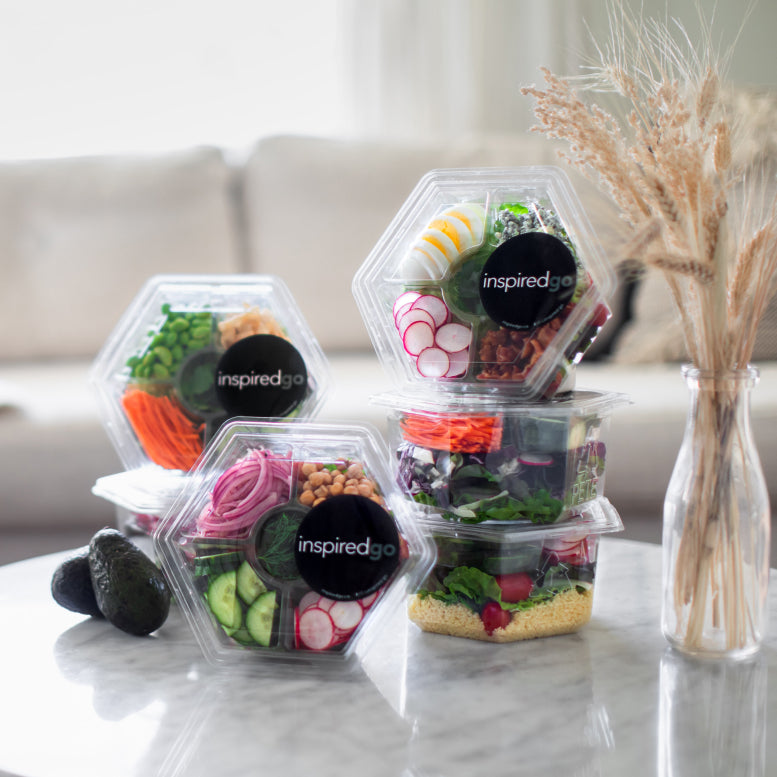What Are Good Vegan Sources Of Iron?
Table of Contents
1. Plant-Powered Iron: Vegan-friendly Iron Sources
2. What Is a Vegan Diet?
3. Why Are Vegan Meal Delivery Services Convenient?
4. How Does Inspired Go Make Vegan Eating Easy?
1. Plant-Powered Iron: Vegan-friendly Iron Sources
Embracing a vegan lifestyle often requires a thoughtful approach to nutrition to ensure all essential nutrients are adequately supplied. One such nutrient of prime importance is iron. Although typically associated with animal-based foods, there are plenty of plant-based sources rich in iron. Legumes, including lentils, chickpeas, soybeans, and peas, are excellent sources. Whole grains such as quinoa and brown rice also provide a good amount of this essential mineral. Nuts and seeds like almonds, chia, hemp, and flaxseeds are not only rich in iron but also in healthy fats and fiber. Leafy green vegetables, particularly spinach, kale, and swiss chard, are notable for their iron content. Lastly, certain fortified foods, such as some plant-based milks and breakfast cereals, can also contribute to your daily iron intake. By incorporating these foods into your meals, you can enjoy a diverse, nutrient-rich diet that supports your vegan lifestyle.
Order fresh salads today →


2. What Is a Vegan Diet?
A vegan diet focuses on consuming plant-based foods while eliminating all animal products, including meat, dairy, and eggs. This lifestyle emphasizes fruits, vegetables, grains, nuts, seeds, and legumes to meet nutritional needs. Vegan meal delivery services simplify this dietary choice by offering pre-prepared meals crafted with balanced macronutrients and essential vitamins. These services ensure that vegan meals are not only nutritious but also delicious and diverse, featuring creative recipes inspired by global cuisines. Additionally, vegan diets are often linked to health benefits such as improved heart health, better digestion, and weight management. By providing easy access to plant-based meals, vegan meal delivery eliminates the challenges of recipe planning, grocery shopping, and meal prep, making it convenient for both long-term vegans and those exploring a plant-based lifestyle.
Choose your salads and schedule delivery →
3. Why Are Vegan Meal Delivery Services Convenient?
Vegan meal delivery services eliminate many of the common challenges associated with plant-based eating, such as sourcing specialty ingredients, meal prep time, and recipe planning. Customers can simply select meals from an online menu and have them delivered directly to their homes. Pre-portioned servings remove the guesswork from meal preparation and reduce food waste. Additionally, clear nutritional labeling makes it easy to track macros and calories. For busy professionals or those new to veganism, these services offer a seamless way to maintain a plant-based diet without hassle. With flexible delivery schedules and diverse menu options, vegan meal delivery provides unmatched convenience for healthy eating.
Get fresh salads and snacks delivered →
4. How Does Inspired Go Make Vegan Eating Easy?
Inspired Go eliminates the hassle of meal planning, shopping, and cooking while still delivering nutritionally balanced vegan meals. Each dish is crafted with fresh, high-quality ingredients and designed to provide a full spectrum of essential nutrients, including plant-based proteins, fiber, and healthy fats. Inspired Go’s chefs draw inspiration from global cuisines, creating delicious, ready-to-eat options like grain bowls, vibrant salads, and hearty pasta dishes. With detailed nutritional labeling, customers can track their intake confidently, ensuring they meet their dietary needs without the complexity of meal prep. Whether you’re a long-time vegan or just exploring plant-based eating, Inspired Go offers a simple, delicious, and convenient way to enjoy a healthy vegan diet.
Try our fresh, ready-to-eat salads →
Frequently Asked Questions
The key difference between vegan and vegetarian diets lies in the exclusion of animal products. Vegetarians avoid meat, poultry, and fish but may consume animal-derived products like eggs, dairy, or honey. Vegans, on the other hand, exclude all animal products, focusing solely on plant-based foods. Veganism is often a lifestyle choice, avoiding animal products in all forms, including clothing and cosmetics.
A vegan diet consists entirely of plant-based foods, including fruits, vegetables, grains, nuts, seeds, and legumes. It excludes all animal-derived products, such as meat, fish, dairy, and eggs. This diet emphasizes nutrient-dense, whole foods, though processed vegan alternatives are available. A vegan diet, when well-balanced, supports good health and environmental sustainability, making it popular for ethical, health, and ecological reasons.
Not all vegan diets are gluten-free. While veganism excludes animal products, gluten is a protein found in wheat, barley, and rye, which are plant-based and commonly included in vegan meals. To maintain a vegan and gluten-free diet, focus on naturally gluten-free foods like fruits, vegetables, rice, quinoa, and gluten-free grains. Always check labels for hidden gluten in processed vegan foods.
On a vegan diet, you can enjoy a wide variety of plant-based foods, including fruits, vegetables, legumes, nuts, seeds, whole grains, and plant-based dairy alternatives. Popular vegan dishes include stir-fries, salads, grain bowls, soups, and curries. Incorporating fortified foods or supplements ensures you meet nutrient needs like B12, iron, and omega-3s, making the diet balanced and enjoyable.
A vegan diet can be very healthy when balanced and diverse. It’s rich in fiber, vitamins, and antioxidants, while being lower in saturated fat and cholesterol. These factors contribute to better heart health, weight management, and reduced risk of chronic diseases. However, careful planning is essential to ensure adequate intake of nutrients like vitamin B12, iron, and protein for overall health.

